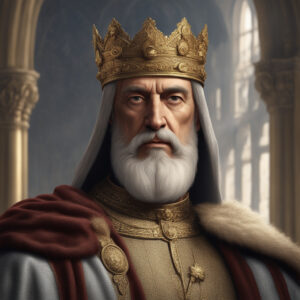Charlemagne, also known as Charles the Great, was a towering figure in the early Middle Ages whose impact on Western Europe resonates to this day. Born in 742, Charlemagne rose to become King of the Franks and Lombards, and eventually, the first Emperor of the Carolingian Empire. His reign marked a transformative era, uniting vast regions of Western Europe under a single rule and laying the foundation for modern European civilization.
Charlemagne’s leadership was characterized by his ambitious military campaigns, which expanded his empire to encompass much of present-day France, Germany, and Italy. These conquests were not just about territorial gain; they were part of his vision to revive the glory of the Roman Empire in a new form. Under his rule, the Carolingian Renaissance flourished, a period of cultural and intellectual revival that saw the establishment of schools, the preservation of classical texts, and the promotion of learning and literacy.
But Charlemagne was more than a conqueror and a patron of education. He was a shrewd and effective administrator who implemented reforms that strengthened his empire’s governance. He standardized weights and measures, reformed the legal system, and promoted trade, all of which helped stabilize and grow the economy. His efforts to unify his diverse territories under a cohesive legal and administrative framework were groundbreaking and set a precedent for future European rulers.
Charlemagne’s coronation as Emperor by Pope Leo III on Christmas Day in the year 800 was a pivotal moment that underscored his authority and the close relationship between the Church and the state. This alliance not only legitimized his reign but also reinforced the idea of a unified Christendom, with Charlemagne as its protector and leader.
Despite his achievements, Charlemagne’s legacy is complex. His empire did not long survive his death in 814, eventually fragmenting into several kingdoms. However, his vision of a united and culturally rich Europe endured, influencing the course of European history for centuries to come. Today, Charlemagne is remembered as a visionary leader whose ambitious endeavors helped shape the medieval world and left an indelible mark on Western civilization.

